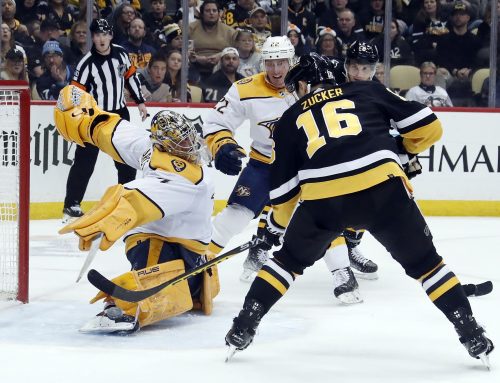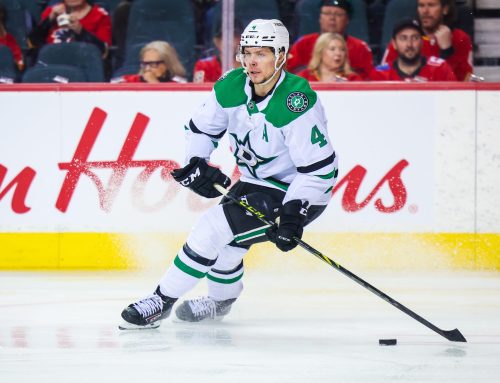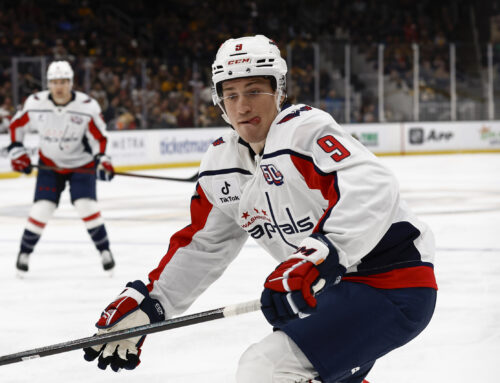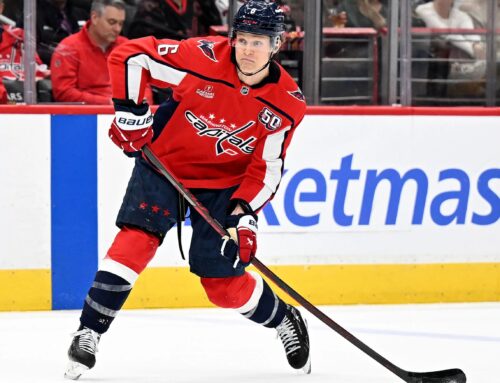
This week's Capped goes through what steps are necessary to setting up a successful salary cap league.
I have had a few requests on the forums to put together an article summarizing the key aspects to starting a successful league with a salary cap aspect. Salary cap leagues are among the most complex of fantasy dynasty styles. When formatted right, the league poses a challenge to even the smartest of managers, and forces constant movement and management of the roster.
Right now if you take a look on the main Dobber site, there are some great outlines for different types of keeper leagues that can be found here. Every league will be different, though, and I don’t want to ramble on too long, so I’m just going to stick with the salary cap specifics.
****
Salary Style
To my knowledge, there are four common styles of salary used. The first two are based on a player’s actual contract. Some leagues use the average annual value (AAV) that they are paid (therefore making it the same as how much they count against their NHL team’s cap) while others may prefer to have a little bit of variance, and they use the actual year-to-year salary. Using AAV gives stability, whereas using salary can give a little more variation from year to year.
On the other hand, many successful leagues use a model where prices are assigned to each player. This can be done in one of two ways. Either the salary is assigned to a player based on performance the previous season, or it is assigned in an auction style. Both have their advantages and disadvantages, but the main upside to having a variable value from season to season is that you don’t have players completely priced out of their value.
The Salary Cap Itself
If your league is planning on mimicking the NHL, and you have 30 teams to do it, then it follows that having a salary cap set at the same number as the NHL makes sense. However in a more common 10 or 12 team league, where do you then set the bar for the salary cap?
The bar for the salary cap is the single most important setting for your league, and it will dictate all of the strategies of your leaguemates. No matter what kind of league it is, managers will try different approaches to get the most out of their team. The salary cap should not be set to try and stop creativity, it should be set to dictate the strength of players left to free agency, and so players can be valued as you and your league deem fit.
In order to also account for inflation, a floating cap is the best method I have found thus far. A floating cap sits at a predetermined amount about above the NHL salary cap to allow for a more saturated group of contracts on each team when there are less than 30. For example, in a 14-team league, you may see a floating cap at $20 Million above the NHL’s limit. This would mean each team has $93 Million to work with.
If a $73 Million cap is set for the common 10 or 12 team league, then highly paid players such as Patrick Kane and Jonathan Toews lose a large part of their value. It defeats the whole purpose of a fantasy league if some of the best NHL players are sitting on the waiver wire because of their high salary. Taking the time to get the cap ceiling in your league right is critical and so is being open to discussing changes as needed.
The Floor
Salary cap leagues also need a salary floor. This can help mitigate the potential of teams tanking. Having a salary floor is important to ensure that teams aren’t throwing away their better players to lose games and play for a better draft pick the following season. The NHL salary cap floor is at 74% of the current cap, and there are penalties for going under. Any higher and the floor could take away from the creativity of some GMs, but much lower and it would defeat the purpose of having a floor to begin with.
On that note, it is also recommended that penalties be agreed on and properly written out ahead of time for salary cap infractions. The less that is left to the discretion of a commissioner, the better. Salary cap penalties can include anything from an automatic loss of a matchup, stats, a draft pick, or anything in between. Typically, a period of time is set for the infraction to be fixed, with a first offence leading to a warning.
League Scoring & Settings
Similar to most leagues, the allotment of active roster spots will, to an extent, dictate player value. In a salary cap league especially, it is necessary to be aware of where any imbalances may occur. Salaries in the NHL are not awarded based on their fantasy value. As such, defensemen generally have less value in salary cap leagues, where forwards on bargain deals become gold. For a league to function smoothly, the stats and roster slots would be balanced to allow for forwards and defense to have similar values.
Keeping the number of forward slots high, as well as adding stats such as faceoff wins, hits and blocked shots will allow for the value of players in the NHL to be more closely mimicked by your league value. If at that point defensemen still don’t seem to have enough value, using the Average Time on Ice (ATOI) stat really helps bring up their worth. Defensemen such as Ryan Suter and Brent Seabrook, among others, would have their value very limited without the addition of certain defensive stats.
Every league is going to have their own intricacies, so no one set of rules will work for them all. If you are starting a salary cap league, the best thing I can suggest is to take to the forums and ask for suggestions. Many leagues have been running a long time and have ironed out the kinks. Managers are also always happy to brag about how great their leagues are by telling you exactly what makes it so great. There really is no better way to get good suggestions on rules, formats and opinions when starting a league.
The two words I leave you with are clarity and flexibility. If you are clear with all the rules and regulations of the league, as well as willing to listen and discuss with other members when things just aren’t working, then there is no reason that your league cannot be a successful one for many years to come.
****
Find me on twitter: @alexdmaclean
One Comment
Leave A Comment
You must be logged in to post a comment.





 PHI
PHI ANA
ANA VAN
VAN DET
DET BUF
BUF NYR
NYR MIN
MIN VGK
VGK

Yes! I’ve seen numerous leagues where they try to emulate NHL rules so closely that they restrict moves or make it too complex! Then they don’t adjust the cap for the size of the league. The whole point is to have fun, and you take it out if you don’t keep it simple!